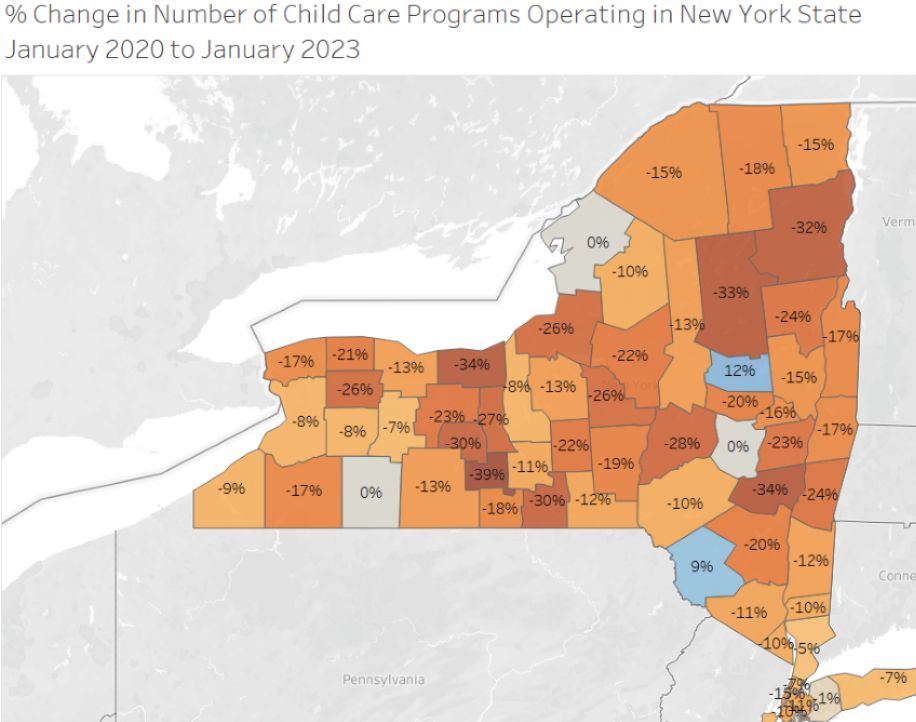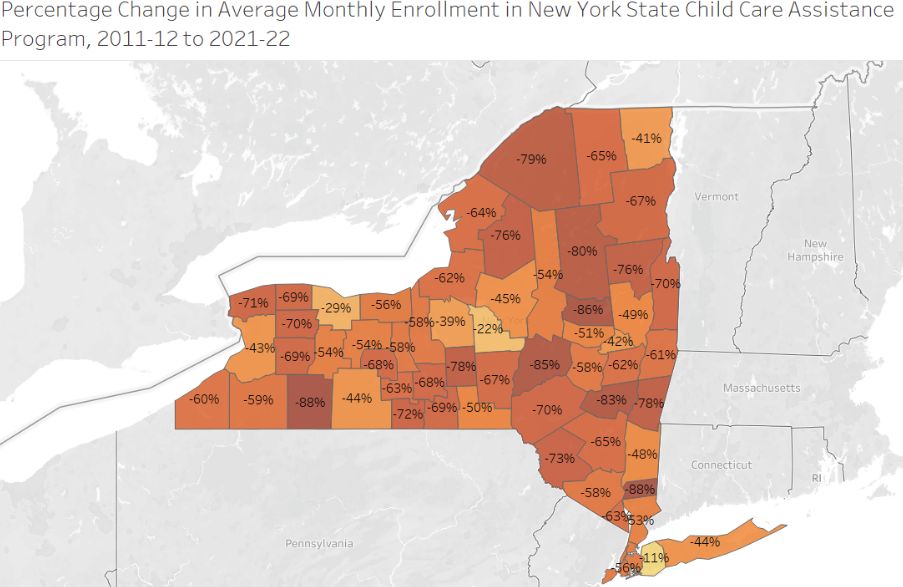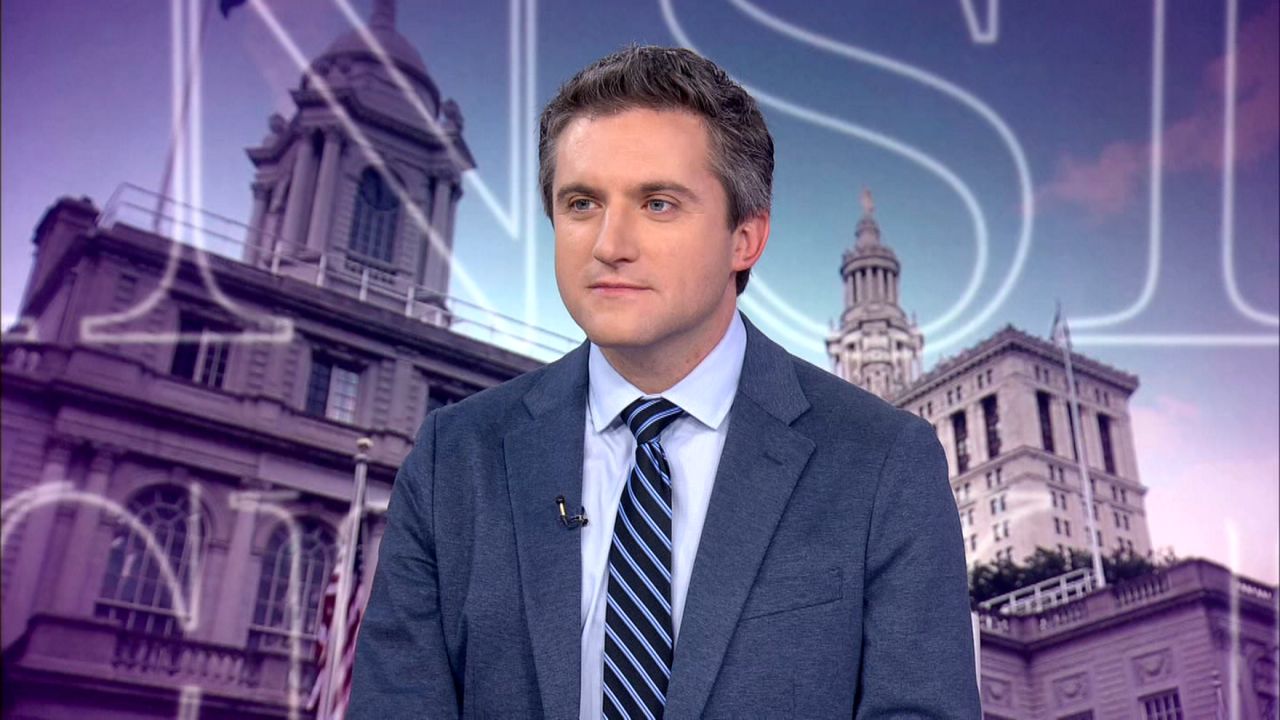Gov. Kathy Hochul's vision to address the state's child care crisis continues to differ from several lawmakers as they prepare to begin this session's budget negotiations.
The Senate Children & Families Committee held a legislative hearing in Albany on Thursday to hear testimony from providers around the state about how to best help the crumbling system. Three of the Senate's seven members participated.
The state has lost the ability to provide child care to about 20,000 fewer children since the start of the COVID-19 pandemic. The state lost roughly half of those fewer slots for care in the last six months, Pete Nabozny, director of The Children's Agenda, told lawmakers.
"Unfortunately, for too many families in New York, child care is, instead, a constant challenge to manage," Nabozny said during testimony. "Many families simply cannot find a care center that meets their needs."
Child care is becoming scarce across New York — especially in urban and rural communities — with many counties facing double-digit declines in child programs over the last three years.

More than two dozen providers testified about a system in freefall, saying inadequate funding has kept wages low, forced centers to close and led to a decline in families seeking services.
Child care providers are paid near the poverty level, leading to higher turnover and fewer options for parents trying to return to the office.
Dede Hill, policy director with the Schuyler Center, says a one-time bonus or increase won't have a lasting impact on the workforce.
"We cannot ask them to do anything more before we raise wages," Hill said. "And they also need to see that the increase is sustained."
Hochul committed $7.7 billion over four years in last year's budget. Hill said the funding was a start, but not enough to reverse the crisis.
It marked increased investments in child care, but fell short of what advocates and several Democrats hoped for: An annual commitment of $5 billion for a universal child care system for all New York families, void of income or immigration status barriers.
But Hochul isn't sold on the idea, or its price tag. She wouldn't say Thursday if she supports the proposal, and instead, reiterated her plans to increase the income threshold to make more families eligible for child care subsidies earning $90,000 assistance and streamlining the application process to help more families take advantage of the programs.
People cannot apply for state child care assistance online.
"A lot of families aren't taking advantage of that, and we're trying to figure out why," she told reporters Thursday at an economic development event in Kingston. "There's money there, there's subsidies there, there's assistance there, but we need to streamline the process, make it a lot easier that people who are qualified, pre-qualified for other forms of assistance will be automatically qualified for these subsidies. So these are the smart things we're trying to do to make sure New Yorkers know we're going to invest in them and invest in their families."
About 135,000 children were enrolled to receive child care assistance in the state in 2011-2012, which has decreased about 75% to fewer than 65,000 children, Nabozny said.

Children & Families Committee chair Sen. Jabari Brisport has led the fight for universal child care in New York for several years. The state Office of Children and Family Services declined Brisport's several requests to participate in Thursday's hearing.
"It's unfortunate because other witnesses have traveled several hours to be here ... and the governor's office of Children and Family Services is less than a 10-minute walk from this room," Brisport said. They said the timing right now was rather difficult so I assume their absence can be blamed on understaffing and underfunding we hope to address in this year's budget."
OCFS did not respond to a question Thursday about why they did not participate.
The department invested more than $1 billion to stabilize the child care industry, including grants to more than 15,000 providers in the last budget. It also included $343 million in funding for child care providers, which requires 75% to be spent on workforce supports, according to OCFS.
"In a recent survey of the impact of those grants, the majority of providers increased the wages of their staff by more than $2 an hour each," according to a statement from the department Thursday.
The department also pointed to Hochul's plan to raise child care workforce wages through a workforce retention program to send payments to 17,000 child care providers statewide to assist with payroll tax costs, recruiting new staff, offering incentives like sign-on bonuses for new employees and other expenses related to both hiring and retention.
Child care programs are private businesses required to comply with state minimum wage laws.
In her State of the State, Hochul announced her intent to tie the state's minimum wage to inflation, which Democrats widely support.
But child care providers say the state's recent minimum wage increases have led to some staff in the industry earning higher wages than educators who've worked in the field for decades.
Republican lawmakers say it's not the right time for the minimum wage hike and it will hurt small businesses, including local child care centers.
"We need to look at that," said Sen. Jake Ashby, a Republican from Castleton. "Their salaries aren't necessarily commensurate with where they need to be ... and a raise like that might impact not only those lower-wage earners, but everybody working."
But other lawmakers say committing to both proposals for an indexed minimum wage and universal child care in the next budget is critical for economic recovery.
"The economy can't grow if we can't have child care so people can go to work," said state Sen. Rob Rolison, a Republican from Poughkeepsie. "And that to me is pretty basic. I know it's more complicated than that, but that's a priority for this government, no doubt."
Brisport agrees the state cannot do one without the other without making the problem worse for child care providers.
"It will add to the issue unless we invest more deeply into them and increase the amount we're reimbursing them," he said.










